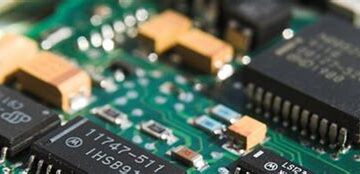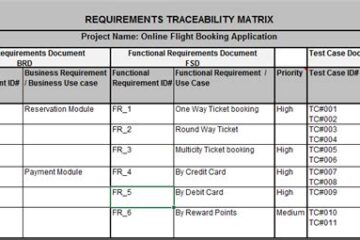The Importance of the European Electronics Industry
The European electronics industry plays a crucial role in the global market, with a strong presence in various sectors such as automotive, aerospace, industrial, and consumer electronics. According to a report by the European Commission, the electronics industry in Europe employs over 2.5 million people and generates an annual turnover of more than €500 billion.
| Sector | Employment (in millions) | Annual Turnover (in € billions) |
|---|---|---|
| Automotive | 1.2 | 250 |
| Aerospace | 0.3 | 75 |
| Industrial | 0.6 | 100 |
| Consumer | 0.4 | 75 |
The establishment of IPC Electronics Europe reflects the growing importance of the European market and the need for tailored support and resources to address the unique challenges and opportunities faced by the industry in the region.
Key Objectives of IPC Electronics Europe
IPC Electronics Europe has set several key objectives to support the growth and development of the electronics industry in Europe:
- Provide local support and resources to IPC members in Europe
- Promote industry standards and best practices
- Foster collaboration and knowledge sharing among industry stakeholders
- Advocate for policies that support the growth and competitiveness of the European electronics industry
- Organize events, training, and certification programs tailored to the needs of the European market
Local Support and Resources
IPC Electronics Europe will provide local support and resources to IPC members in Europe, ensuring that they have access to the latest industry information, standards, and best practices. This includes:
- Technical support and guidance on IPC standards implementation
- Access to IPC’s online resources and publications
- Networking opportunities with industry peers and experts
- Participation in local events and training programs
Promoting Industry Standards and Best Practices
IPC Electronics Europe will actively promote the adoption of IPC standards and best practices in the European electronics industry. This will help ensure consistency, reliability, and quality in electronics manufacturing processes across the continent. Some of the key IPC standards relevant to the European market include:
- IPC-A-610: Acceptability of Electronic Assemblies
- IPC-J-STD-001: Requirements for Soldered Electrical and Electronic Assemblies
- IPC-A-600: Acceptability of Printed Boards
- IPC-6012: Qualification and Performance Specification for Rigid Printed Boards
Fostering Collaboration and Knowledge Sharing
IPC Electronics Europe will foster collaboration and knowledge sharing among industry stakeholders, including manufacturers, suppliers, academia, and government agencies. This will be achieved through various initiatives such as:
- Organizing industry forums and conferences
- Facilitating working groups and committees on specific topics
- Encouraging cross-border partnerships and collaborations
- Sharing success stories and best practices from across the European electronics community
Advocacy for Supportive Policies
IPC Electronics Europe will advocate for policies that support the growth and competitiveness of the European electronics industry. This includes engaging with policymakers at the European Union and national levels to address issues such as:
- Trade and market access
- Research and development funding
- Skills development and education
- Environmental sustainability and circular economy
- Intellectual property protection
Events, Training, and Certification Programs
IPC Electronics Europe will organize events, training, and certification programs tailored to the needs of the European market. These initiatives will help industry professionals stay up-to-date with the latest technologies, standards, and best practices, while also providing opportunities for networking and knowledge sharing. Some of the planned activities include:
- Regional conferences and exhibitions
- Technical workshops and seminars
- IPC certification programs for industry professionals
- Webinars and online learning resources
The Benefits of IPC Electronics Europe for the Industry
The establishment of IPC Electronics Europe brings several benefits to the European electronics industry:
- Strengthened local presence and support for IPC members in Europe
- Increased adoption of industry standards and best practices, leading to improved quality and reliability
- Enhanced collaboration and knowledge sharing among industry stakeholders
- Greater advocacy for policies that support the growth and competitiveness of the European electronics industry
- More opportunities for professional development and networking through tailored events and training programs
These benefits will contribute to the overall growth, innovation, and sustainability of the European electronics industry, enabling it to remain competitive in the global market.

Frequently Asked Questions (FAQ)
1. What is IPC Electronics Europe?
IPC Electronics Europe is a new entity established by IPC, the global association for the electronics manufacturing industry, to serve the needs of the European electronics industry. It provides local support, resources, and advocacy for IPC members and the electronics community across Europe.
2. Where is the main office of IPC Electronics Europe located?
The main office of IPC Electronics Europe is located in Germany, reflecting the country’s central role in the European electronics industry.
3. What are the key objectives of IPC Electronics Europe?
The key objectives of IPC Electronics Europe include providing local support and resources to IPC members in Europe, promoting industry standards and best practices, fostering collaboration and knowledge sharing, advocating for supportive policies, and organizing events, training, and certification programs tailored to the needs of the European market.
4. How will IPC Electronics Europe benefit the European electronics industry?
IPC Electronics Europe will benefit the European electronics industry by providing strengthened local presence and support, increasing the adoption of industry standards and best practices, enhancing collaboration and knowledge sharing, advocating for supportive policies, and offering more opportunities for professional development and networking.
5. What types of events and training programs will IPC Electronics Europe organize?
IPC Electronics Europe will organize various events and training programs tailored to the needs of the European market, including regional conferences and exhibitions, technical workshops and seminars, IPC certification programs for industry professionals, and webinars and online learning resources.
Conclusion
The establishment of IPC Electronics Europe represents a significant milestone for IPC and the European electronics industry. With its main office in Germany and a focus on providing local support, resources, and advocacy, IPC Electronics Europe is well-positioned to address the unique challenges and opportunities faced by the industry in the region.
By promoting industry standards and best practices, fostering collaboration and knowledge sharing, advocating for supportive policies, and organizing tailored events and training programs, IPC Electronics Europe will contribute to the growth, innovation, and sustainability of the European electronics industry. As the industry continues to evolve and adapt to new technologies and market demands, IPC Electronics Europe will play a crucial role in ensuring that the European electronics community remains at the forefront of the global market.



0 Comments